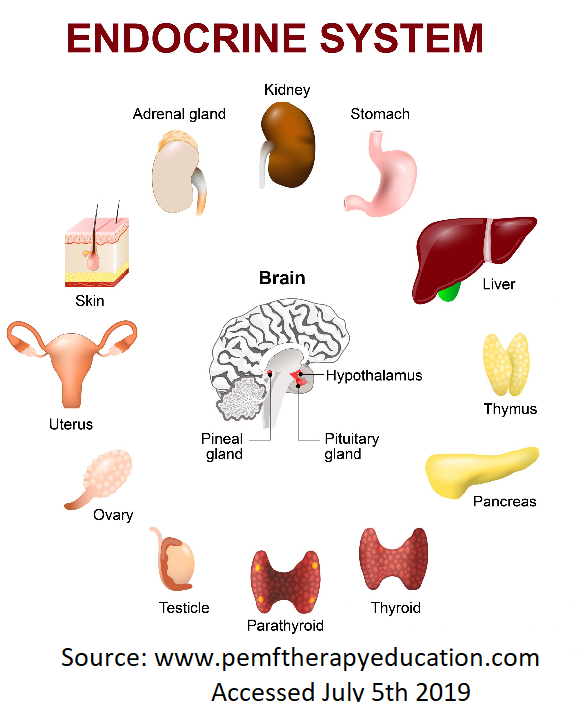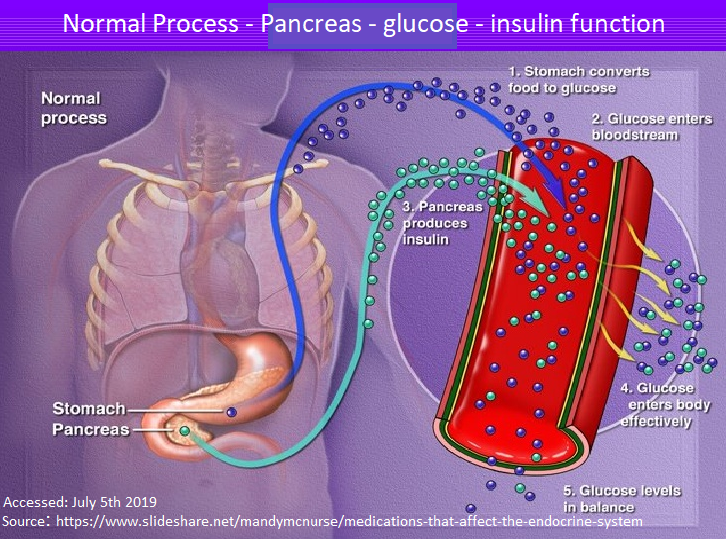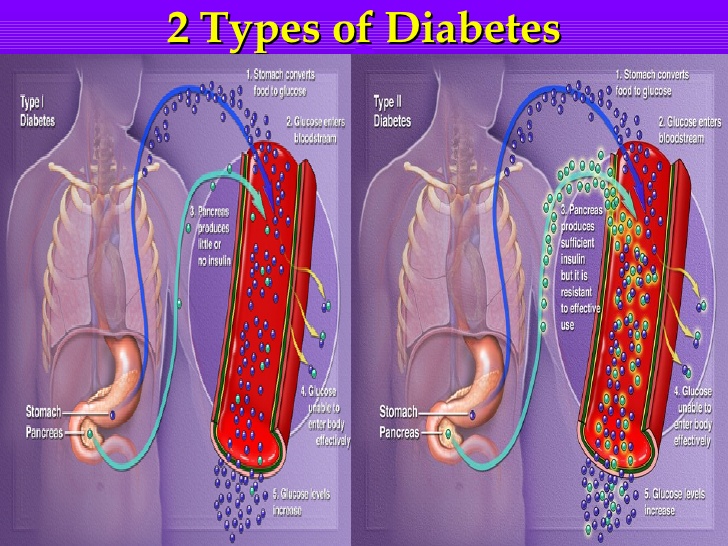Endocrine System
/ɛndoʊkɹaɪn/ /sɪstʌm/
1. [noun] the endocrine system is a network of glands that produce and release hormones that manage body functions by releasing specific hormones into the blood to assist other cells to coordinate various body processes, such as: · Convert calories to energy · Heart beat · Bone and tissue growth · Reproduction As well as playing a vital role in whether or not you develop diabetes, thyroid disease, growth disorder, or sexual dysfunction. Endocrine glands include: Adrenal glands: Kidney- release the hormone cortisol. Hypothalamus: Brain - tells the pituitary gland when to release hormones. Ovaries: Female reproductive organ - release eggs and produce sex hormones. Islet cells: Pancreas - control the release of the insulin and glucagon. Parathyroid: Four tiny glands in the neck - that play a role in bone development. Pineal gland: Brain - linked to sleep patterns. Pituitary gland: Brain - It is often called the "master gland" because it influences many other glands, especially the thyroid. Testes: Male reproductive glands that produce sperm and sex hormones. Thymus: A gland in the upper chest that helps develop the body's immune system early in life. Thyroid: A butterfly-shaped gland in the front of the neck that controls metabolism. Diabetes is the most commond endocrine disorder diagnosed the the US
Source: https://www.webmd.com/diabetes/endocrine-system-disorders#1



Frequently Asked Questions
How can hormonal changes sometimes affect foot comfort during everyday activities like walking or standing?
Hormonal fluctuations influenced by the endocrine system can lead to fluid retention or minor shifts in tissue flexibility, which may cause subtle foot swelling or stiffness during common daily movements.
How does understanding the Greek roots of 'endocrine' help us appreciate its indirect influence on foot tissues?
The term 'endocrine' comes from Greek words meaning 'within' and 'to secrete.' This reminds us that internal gland secretions can influence overall metabolism and may indirectly affect factors like skin hydration and tissue maintenance in the feet.
What is a common misconception about hormone changes and their impact on the health of your feet?
Many people think that hormone fluctuations only affect weight or mood, but these changes can also contribute to alterations in foot structure, such as increased fluid retention or subtle changes in tissue responsiveness during movement.